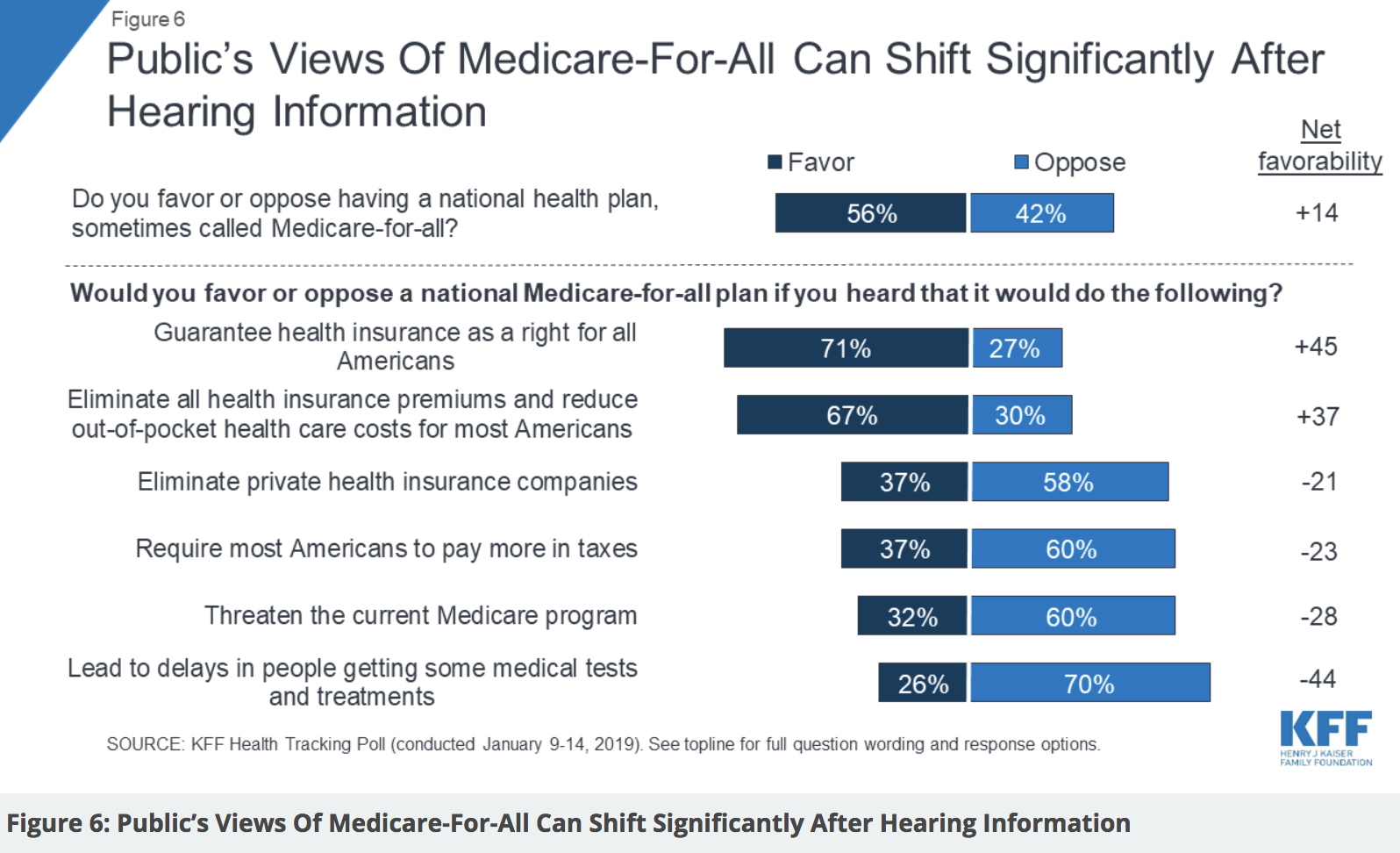I‘ve long cautioned readers to view any poll showing overwhelming support for “Medicare for all” with skepticism, and a new poll is a great demonstration of why. While the abstract concept may poll well, any public support rests on an extremely weak foundation and collapses when people are given more context.
At first blush, a new poll from the Kaiser Family Foundation would seem to be encouraging news for supporters of national healthcare. The poll finds that 56 percent favor the idea, which the question notes is “sometimes called Medicare for all,” compared to just 42 percent who oppose it.
Furthermore, 71 percent support the idea if they heard that it would “guarantee health insurance as a right for all Americans,” and 67 percent like it if told it would eliminate premiums and reduce out-of-pocket costs.
However, when asked if they would support “Medicare for all” if told it would “eliminate private health” insurance companies or “require most Americans to pay more in taxes,” support sinks to 37 percent; when told it would threaten existing Medicare, support falls to 32 percent; and when told it would “lead to delays in people getting some medical tests and treatments” just 26 percent favor the idea, and a whopping 70 percent oppose it.

All of these counterarguments against “Medicare for all” are either true by definition or nearly certain to be true.
The Senate proposal sponsored by Sen. Bernie Sanders, I-Vt., and four other likely or declared 2020 Democratic presidential candidates (Elizabeth Warren, Kirsten Gillibrand, Kamala Harris, and Cory Booker), would put everybody on a government health insurance plan, and all private insurance that tried to offer the same types of benefits as the government plan would be outlawed.
Both the liberal Urban Institute and libertarian-leaning Mercatus Center have found a “Medicare for all” system would add about $32 trillion over a decade to federal spending. In his 2016 campaign, Sanders proposed broad-based tax increases, including on the middle class, to help finance his vision for national healthcare, and openly argued that workers would ultimately be better off as a result because they’d be getting free healthcare.
Though Sanders argues that his plan would improve existing Medicare benefits, it’s also true that under his plan, seniors, like everybody else, would be moved from the existing Medicare program onto the new government-run plan that his legislation would create.
Finally, in addition to taxes, controlling costs of the national healthcare plan would be contingent on the government slashing payments to doctors, hospitals, and other medical providers. In fact, one of the primary arguments for such a system is that if government is purchasing healthcare for everybody, it can use its tremendous bargaining power to drive down costs. This will inevitably lead to long delays in people purchasing healthcare.
This reality is good reason why Democrats are ultimately split on the concept of proceeding full speed ahead with a socialized health insurance approach, and why they’re toying with various alternatives, such as bolstering Obamacare, allowing near retirees to buy into Medicare, or adding a government-run plan to Obamacare’s exchanges.
